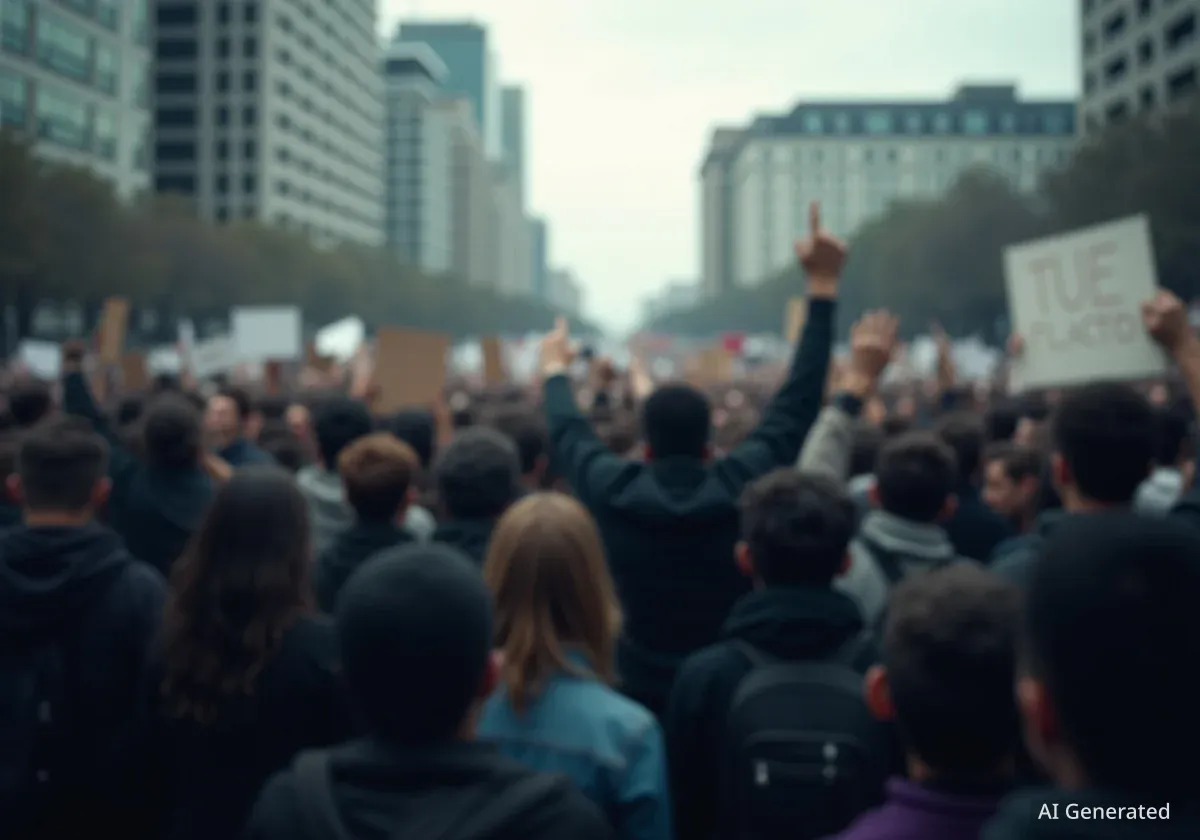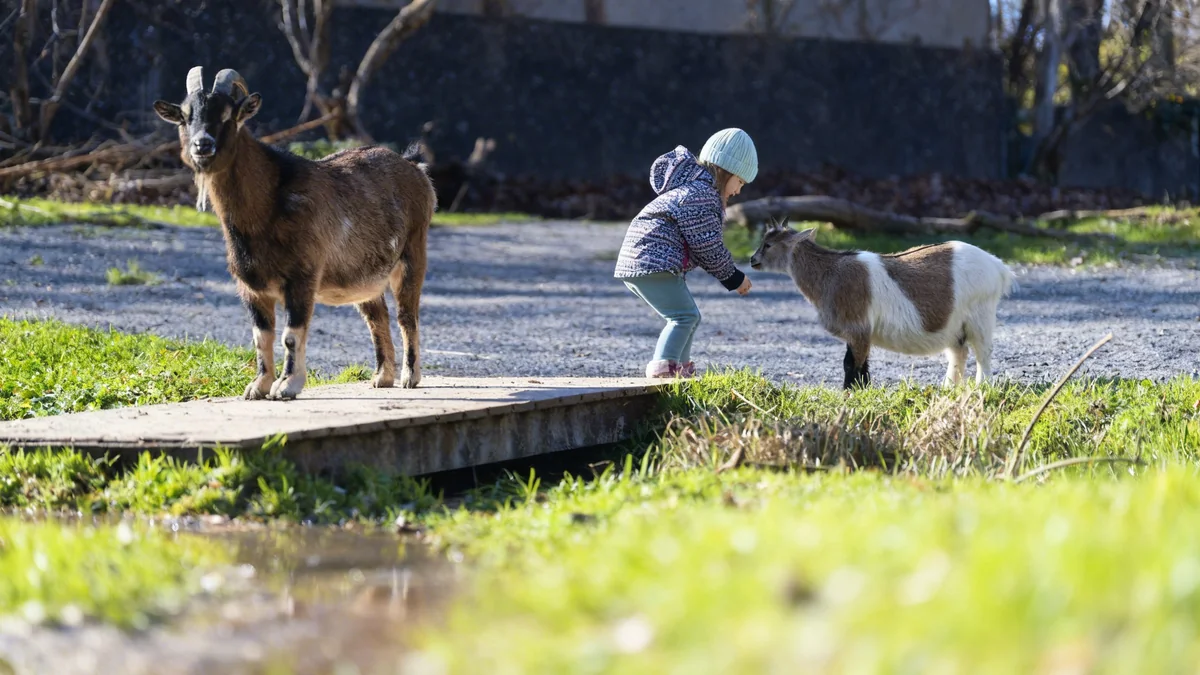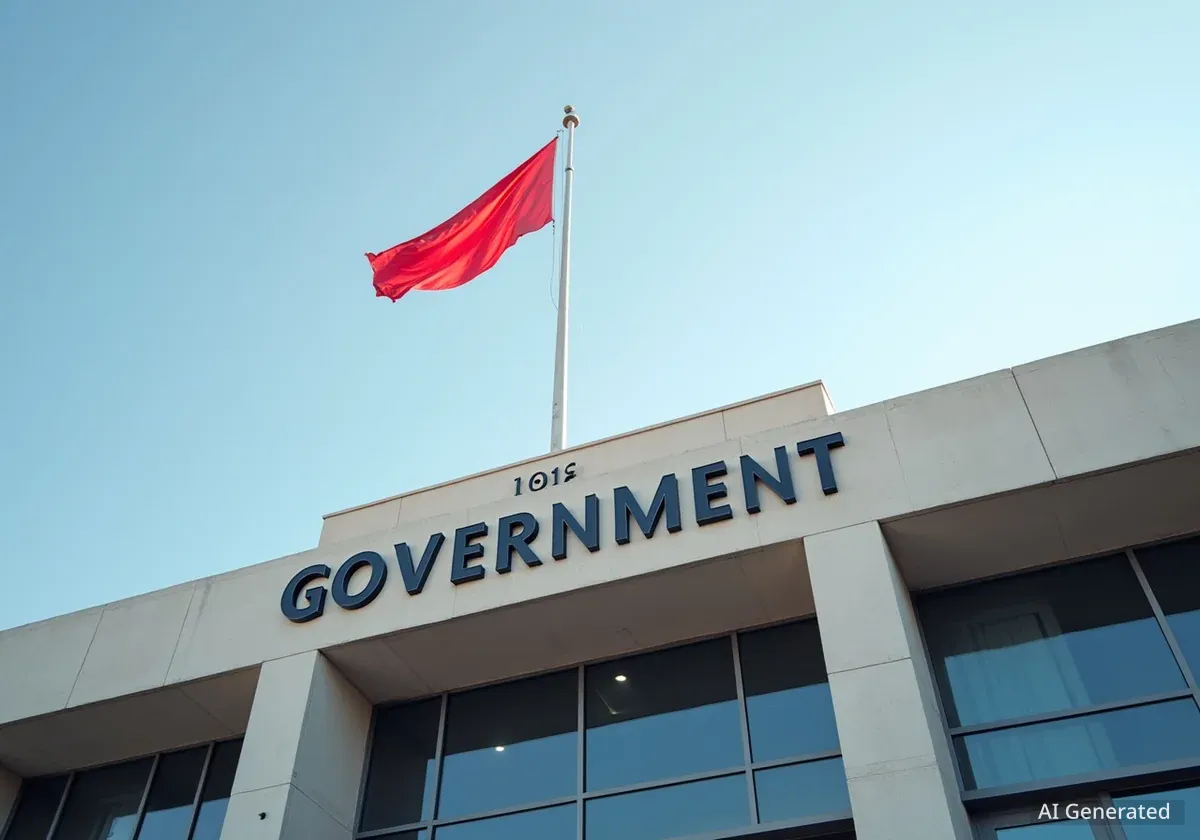Hundreds of people gathered on the Bundesplatz in Bern on Saturday afternoon to protest against the authorized culling of wolves in Switzerland. Demonstrators called for an immediate halt to what they described as a "wolf massacre," following a recent federal decision to permit the killing of wolves from numerous packs across the country.
Key Takeaways
- Several hundred demonstrators assembled on Bern's Federal Square to oppose wolf culling.
- The protest was a direct response to the Federal Office for the Environment's approval to cull wolves from 21 packs.
- Organizers, including the "Committee against wolf culling," labeled the policy a "cruel and undemocratic game."
- Swiss Animal Protection (STS) has also criticized the decision, warning it could destabilize wolf packs and fail to protect livestock.
Demonstration Unfolds in the Capital
On Saturday, September 27, 2025, Bern's Federal Square became the focal point for opposition to Switzerland's wolf management policies. According to a Keystone-SDA news agency reporter on the scene, several hundred individuals participated in the national rally. Many attendees wore red clothing, a symbolic color chosen for the event, and some were accompanied by their dogs.
The atmosphere of the demonstration was marked by a series of speeches demanding a complete stop to wolf culling. Interspersed between the addresses were performances by drummers, adding a rhythmic element to the protest. The central message from all speakers was clear: the current government-sanctioned killing of wolves is unacceptable.
Background of the Protest
The demonstration was organized in response to a recent directive from the Federal Office for the Environment (FOEN). The agency granted cantons the authority to proactively cull wolves from a total of 21 distinct packs. This move represents a significant shift in Switzerland's approach to wolf population management, moving from a reactive policy (culling only specific problem animals) to a more preventative one, which has drawn sharp criticism from conservation and animal welfare groups.
Organizers Voice Strong Opposition
The call for the national demonstration came from the "Committee against wolf culling." This group was supported by several other organizations, including Wildlife Protection Switzerland (Wildtierschutz Schweiz) and Animal in Focus (Tier im Fokus).
In their statements, the committee condemned the government's approach in strong terms. They argued that a "cruel and undemocratic game" is being played in Switzerland under the guise of population management. The organizers believe the policy allows for the nearly arbitrary "removal" of wolf pups and adult animals.
"Under the cloak of management, a cruel and undemocratic game is being played," the committee stated, referring to the recent approvals for culling.
The term "wolf massacre" was used repeatedly by organizers and protestors to describe the current situation, highlighting their view that the culling is excessive and inhumane. Their primary demand is the immediate reversal of the culling authorizations.
Animal Welfare Groups Raise Concerns
The protest on Saturday followed a public statement issued a day earlier by Swiss Animal Protection (STS), a major animal welfare organization in the country. The STS expressed that it was "deeply distressed" by the federal government's decision to approve the widespread culling.
The organization challenged the effectiveness of the government's strategy, stating that it does not offer a lasting solution to conflicts between wolves and agriculture. On the contrary, the STS warns that the policy could have unintended negative consequences.
Potential Risks of Culling
According to Swiss Animal Protection, removing individuals from established packs can disrupt their social structure. This disruption may lead to the pack splintering into smaller, less experienced groups. These new groups may be more likely to prey on unprotected livestock, potentially worsening the very problem the culling aims to solve.
Stability of Wolf Packs at Risk
A key argument from the STS is that the culling policy poses "considerable dangers for the stability of the wolf packs." A stable, intact pack with experienced alpha animals is often more effective at hunting wild prey and typically avoids human settlements and livestock. By killing members of these packs, authorities risk creating more unpredictable and potentially problematic wolf behavior.
"This measure does not represent a sustainable solution," the STS wrote in its official communication. The group advocates for a greater focus on non-lethal methods, such as the widespread implementation of livestock guarding dogs and protected fencing, as the primary strategy for coexistence.
The Ongoing Debate Over Coexistence
The protest in Bern is the latest event in a long and often polarized debate in Switzerland about the return of the wolf. The species, which was eradicated from the country over a century ago, began to reappear naturally in the 1990s. Its population has grown steadily since, leading to increased friction with agricultural communities, particularly sheep farmers in mountainous regions.
Proponents of culling, including some farming lobbies and rural political groups, argue that the wolf population has reached a level where it poses an unacceptable threat to livestock and must be controlled to protect rural livelihoods. They see proactive regulation as a necessary management tool.
On the other side, conservationists and animal welfare advocates argue that the wolf is a vital part of the natural ecosystem and is a protected species. They maintain that the focus should be on adapting farming practices to coexist with predators, rather than resorting to lethal control. The demonstration in Bern shows that this side of the debate remains passionate and mobilized against the government's current direction.




